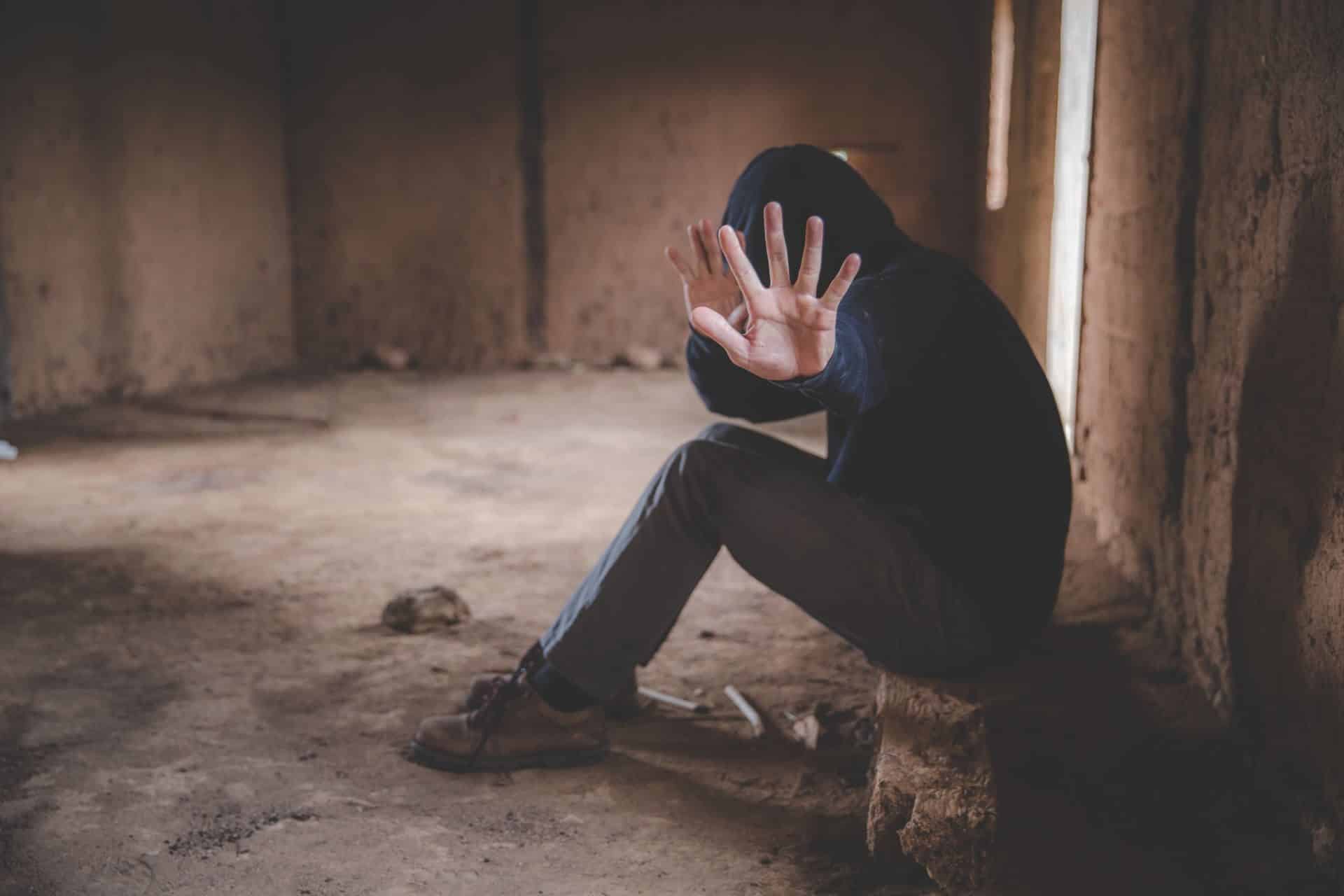The four hardest drugs to quit change the brain’s chemical structure by messing with the production and absorption of dopamine or endorphins. Addiction to these drugs disrupts regions in the brain that are responsible for reward, motivation, learning, judgement and memory.
Changes to your brain can become fixed with regular use of the substance as drug dependency deepens. We look at the hardest drugs to quit, how the drug works, signs of abuse and what are your treatment options.
4 drugs that are the hardest to quit
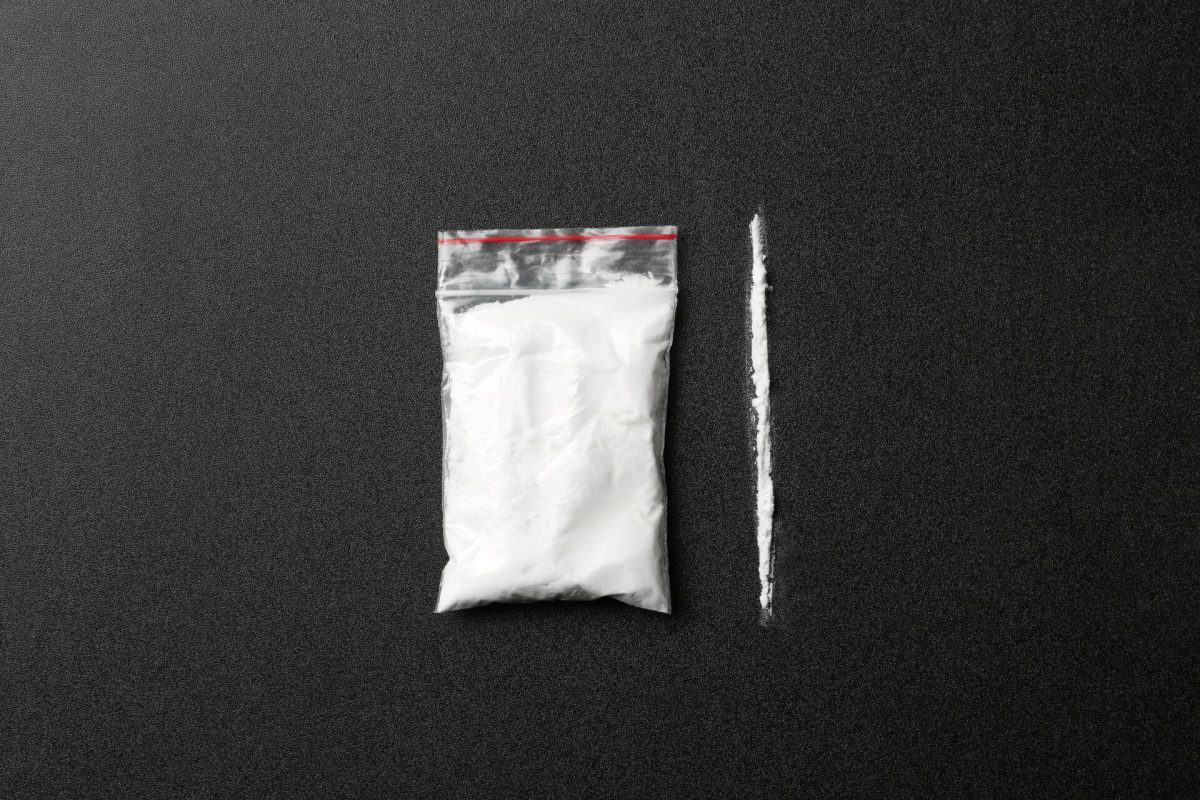
Cocaine
Cocaine is a powerful stimulant drug that causes an intense rush of pleasure when swallowed, injected or crushed and snorted. Stimulants temporarily increase alertness and energy which is why they’re called uppers. Amphetamines are another type of stimulant drug that has the same effect as cocaine.
How cocaine works
Cocaine itself is not highly addictive but once you become addicted, it’s the most difficult stimulant drug to stop using. Cocaine changes the dopamine and serotonin receptors so that your neural system responds to the substance. Overstimulated dopamine and serotonin receptors are what cause “emotional blunting”.
Basically, this is where you stop responding to neurotransmitters that are naturally produced by your brain. Heavy cocaine users go from the physical and emotional high to crushing depression, anxiety, aggression and agitation. This is known as the “crash” when the cocaine effect wears off. The up-and-down effects of cocaine on your neural system is what leads to severe psychological and emotional dependence on the drug.
Signs of cocaine abuse
Short-term: exhaustion, depression, anxiety, apathy, irritability, nightmares, insomnia, poor health
Long-term : paranoia, hostility, racing heartbeat, dangerously high body temperature
Recommended treatment for cocaine addiction
Going ‘cold turkey’ where you stop using cocaine on your own is not recommended if you are a heavy user. The withdrawal symptoms are harsh and you shouldn’t try to handle them on your own.
First you need to be admitted for a medical detox. Anti-depressants and beta blockers like Propranolol are often used to help with severe withdrawal symptoms.
Then preferably, you should go to an inpatient addiction treatment center where you will receive an individualised addiction treatment plan that includes intensive therapy and dual diagnosis for a co-occurring mental disorder.
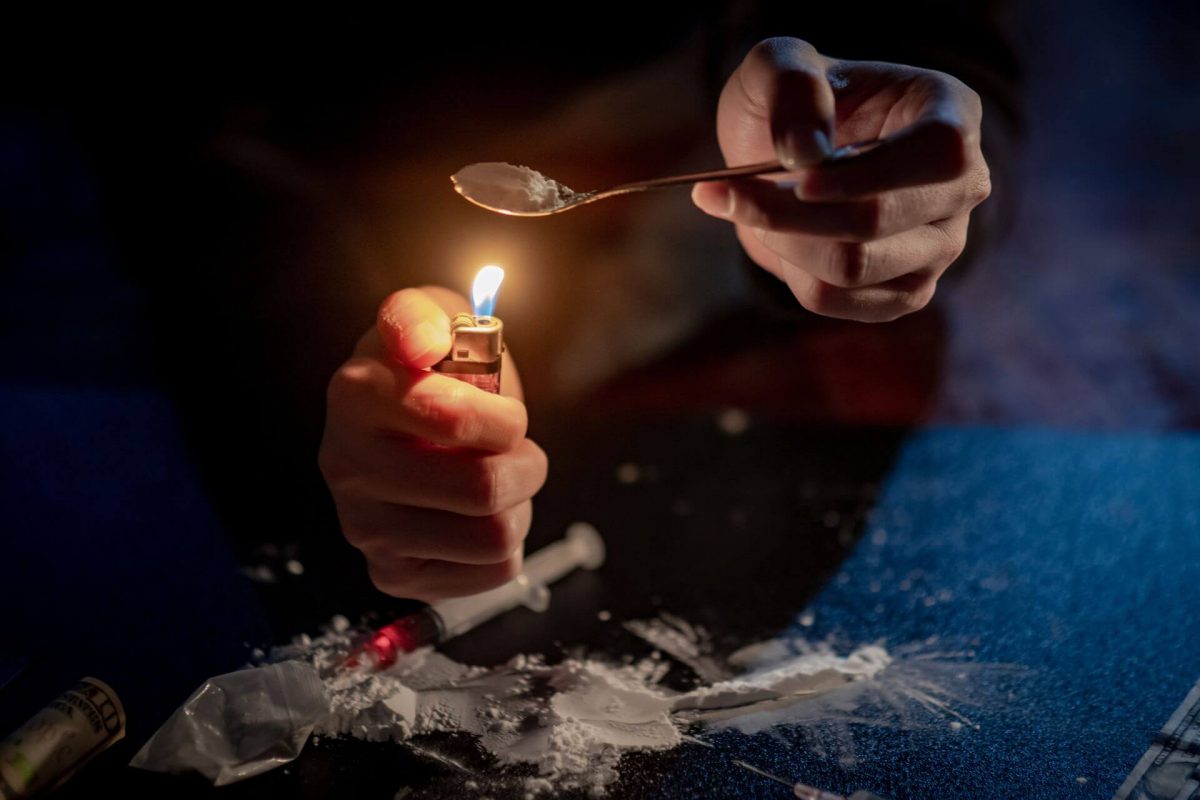
Heroin
Heroin contains morphine molecules which have a similar structure to endorphins that your body naturally produces in order to experience pleasure or pain. The morphine molecules enter your body and lock onto the endorphin-receptor sites on nerve endings in your brain. The process of binding to nerve-endings is rapid and leads to instant euphoria or pain relief (analgesia).
How heroin works
The morphine molecules in heroin are more powerful than your body’s own endorphins because the organism can actually control how much of the feel-good chemical hits your brain. In fact, the imposter endorphin does more for pain relief than making you feel good. The drawback of repeated use of heroin and the flood of imposter endorphins in your brain is addiction.
Heroin is commonly injected, snorted or smoked for a mellow high, relaxation and instant relief from pain. Prescription drugs that mimic the opioid effects of heroin include OxyContin, Vicodin, methadone, fentanyl, codeine and morphine.
Heroin withdrawal symptoms
Heroin withdrawal symptoms are extreme which is why so many people who try to stop using the drug relapse shortly afterwards.
The physical symptoms range from flu-like symptoms such as shakes, sweating and chills to dry mouth, severe itching, vomiting, muscle aches, headaches, insomnia, runny nose and yawning.
The mental symptoms include depression, anxiety, irritability, agitation and brain fog.
Life-threatening symptoms of heroin withdrawal can cause your heart function to slow, breathing becomes severely slowed which can lead to a coma and permanent brain damage.
Recommended treatment for heroin addiction
Going ‘cold turkey’ where you stop using heroin on your own is not recommended if you are a heavy user. The withdrawal symptoms are harsh and you shouldn’t try to handle them on your own.
First you need to be admitted for a medical detox. Medication will be administered to help manage the drug cravings and opioid withdrawals symptoms. Methadone and Buprenorphine are most commonly used to treat heroin withdrawal symptoms.
Then preferably, you should go to an inpatient addiction treatment center where you will receive an individualised addiction treatment plan that includes intensive therapy and dual diagnosis for a co-occurring mental disorder.
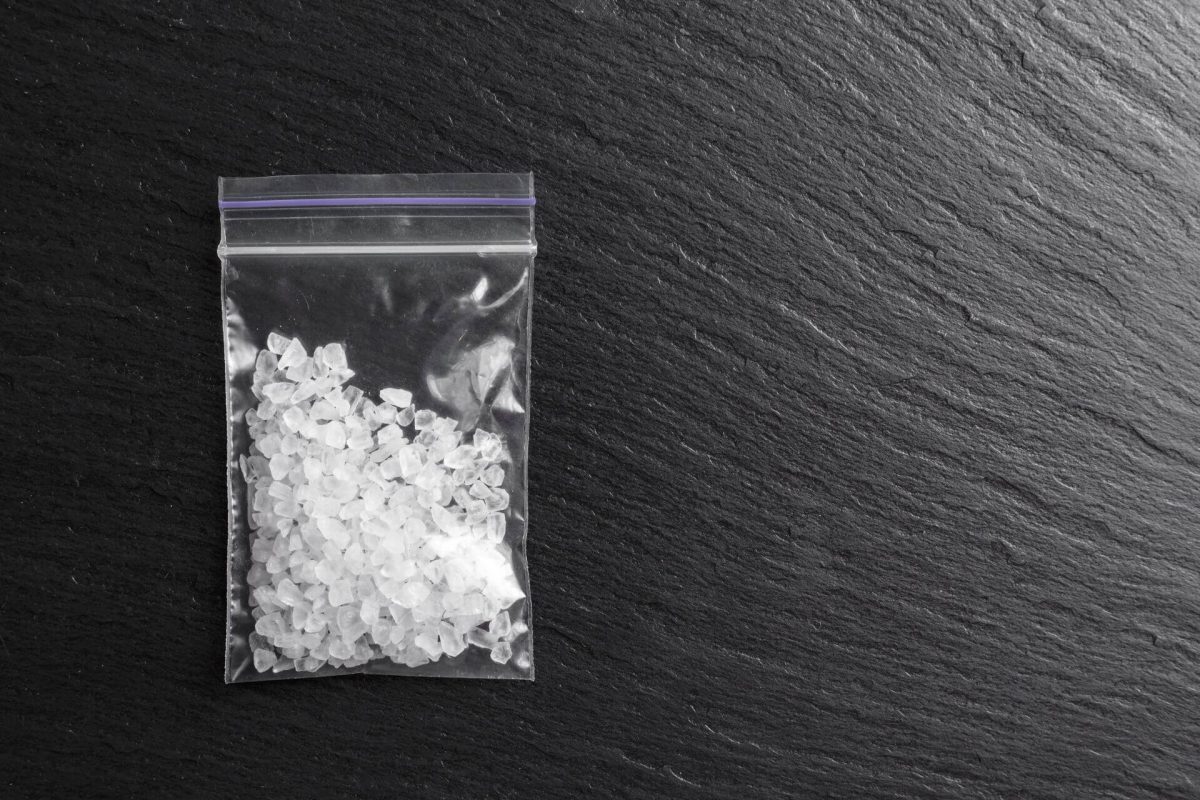
Methamphetamine or crystal meth
Methamphetamine – meth or crystal meth – is a man-made stimulant drug that is injected, smoked or snorted to produce an instant and powerful high. Crystal meth is more commonly used because it has longer lasting effects than meth in powdered form.
Crystal meth causes intense pleasure lasting up to 12 hours but is followed with an extreme “crash” when the drug wears off. This brings on debilitating depression, anxiety, agitation, extreme fatigue and severe drug cravings.
How crystal meth works
Using meth for a long time can actually change your brain structure and cause damage to white and gray matter. This causes physical and psychological problems, including regulating your memory and emotions.
Dopamine levels in your body become depleted which makes it hard to feel pleasure and leads to mood swings and depression during meth withdrawal. This can be rebalanced over time.
Signs of meth abuse
- rotting teeth (meth mouth)
- intense scratching
- thinning body
- acne or sores
- paranoia
- irritability
- confusion
- convulsions
- low immunity
- pallid skin tone
Recommended treatment for meth addiction
Going ‘cold turkey’ where you stop using meth or crystal meth on your own is not recommended if you are a heavy user. The withdrawal symptoms are harsh and you shouldn’t try to handle them on your own.
First you need to be admitted for a medical detox. Medication will be administered to help manage the drug cravings and opioid withdrawals symptoms. Anti-psychotics, anti-depressants and anti-anxiety drugs are commonly used to help regulate brain chemistry after long-term use of crystal meth or meth.
Then preferably, you should go to an inpatient addiction treatment center where you will receive an individualised addiction treatment plan that includes intensive therapy and dual diagnosis for a co-occurring mental disorder.
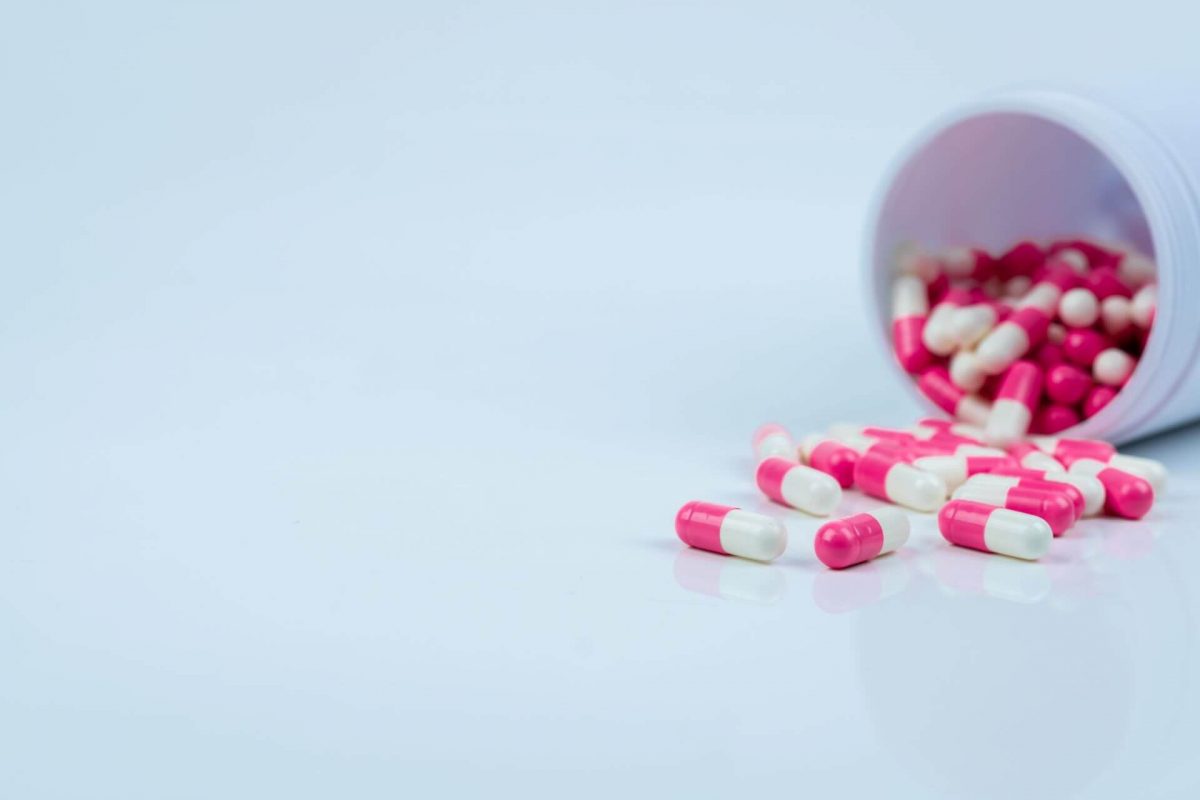
Benzodiazepines
Benzodiazepines – or benzos – are prescription sedatives and tranquilisers that are prescribed to help lower anxiety levels, relax you and help you sleep. Examples of benzos include Valium ((diazepam), Ativan (lorazepam), Klonopin (clonazepam) and Xanax (alpraxolam).
Benzos produce a “high” that is similar to being intoxicated on alcohol. However, they are highly addictive and when regularly abused, they can be habit-forming and lead to drug addiction. When taken with alcohol or opioid drugs, the high is intensified.
How benzodiazepines work
Benzos work by increasing dopamine and levels of gamma-aminobutyric acid (GABA) in your brain. GABA helps reduce anxiety and symptoms of stress by acting as a natural tranquiliser, producing a relaxing and mellow effect. They kick in during a “fight or flight” reaction, where your body is flooded with GABA to bring down your heart rate, body temperature and blood pressure.
Nerve firings in your neural system are deadened or suppressed when you abuse benzos. What happens is your body naturally builds a tolerance over time to this drug and you need to take higher doses to get the same effect. When you cut down or stop using benzos, you’ll experience severe withdrawal symptoms. Many benzo abusers relapse because the withdrawal symptoms are so unpleasant.
Signs of benzo abuse
- fatigue or weakness of limbs
- blurred vision
- drowsiness
- poor judgement or decision-making
- mood swings
- risky behaviour (driving while high)
- hallucinations
- numbness in fingers and toes
- seizures
Long-term effects of benzo abuse
depression
anxiety
post-traumatic stress disorder (PTSD)
mania
psychosis
sleep disorders
sexual dysfunction
delirium
neurocognitive disorders
Recommended treatment for benzodiazepines addiction
Acute benzodiazepine withdrawal takes so long that benzo abusers are not usually put into hospital for a medical detox. It’s more effective to work with a doctor to wean off the benzos you’re taking, either as an inpatient or outpatient at an addiction treatment center.
Doctors sometimes will switch from one benzodiazepine to a longer-acting one such as Klonopin to try to make this process easier and then wean the patient off the replacement benzo by about 10% per week.
You can also expect to suffer from severe anxiety, increased insomnia and panic attacks while in benzo withdrawals. Unfortunately, the risk of relapse during this drawn-out period is high because the withdrawal symptoms are so brutal, most patients can’t tolerate them and start using benzos again.
We’re here to help.
Contact us today if you’d like a confidential and free chat with one of our highly-trained addiction professionals at White River Manor in South Africa.


